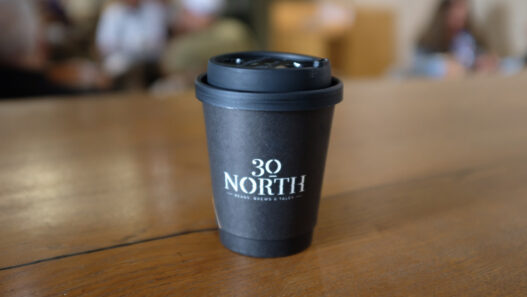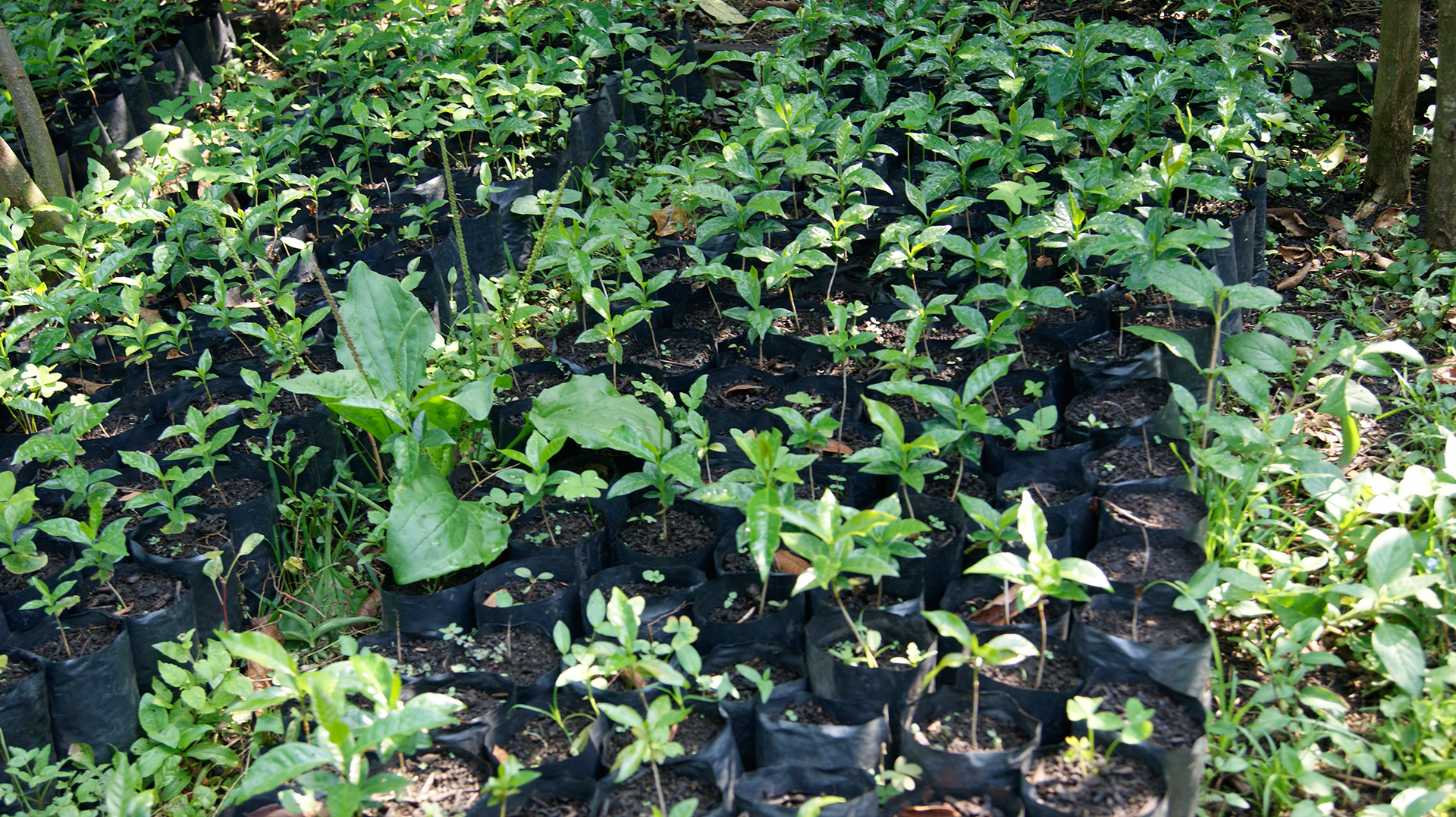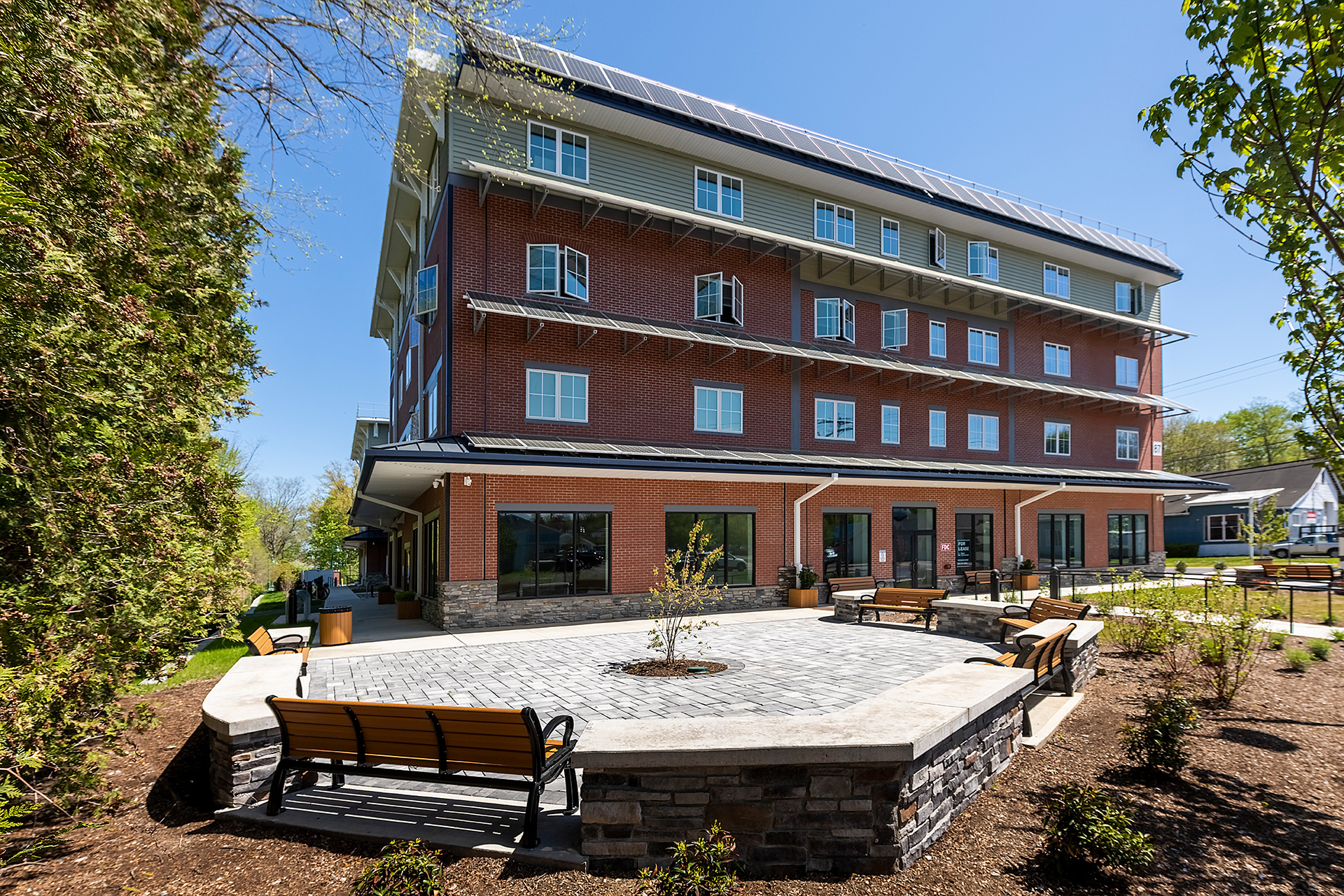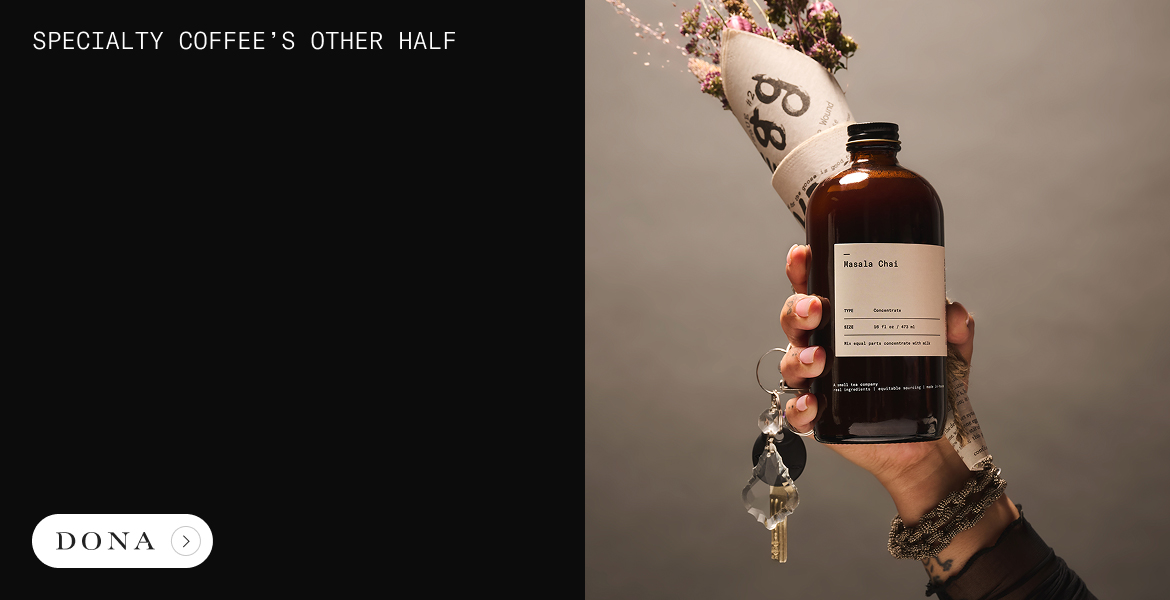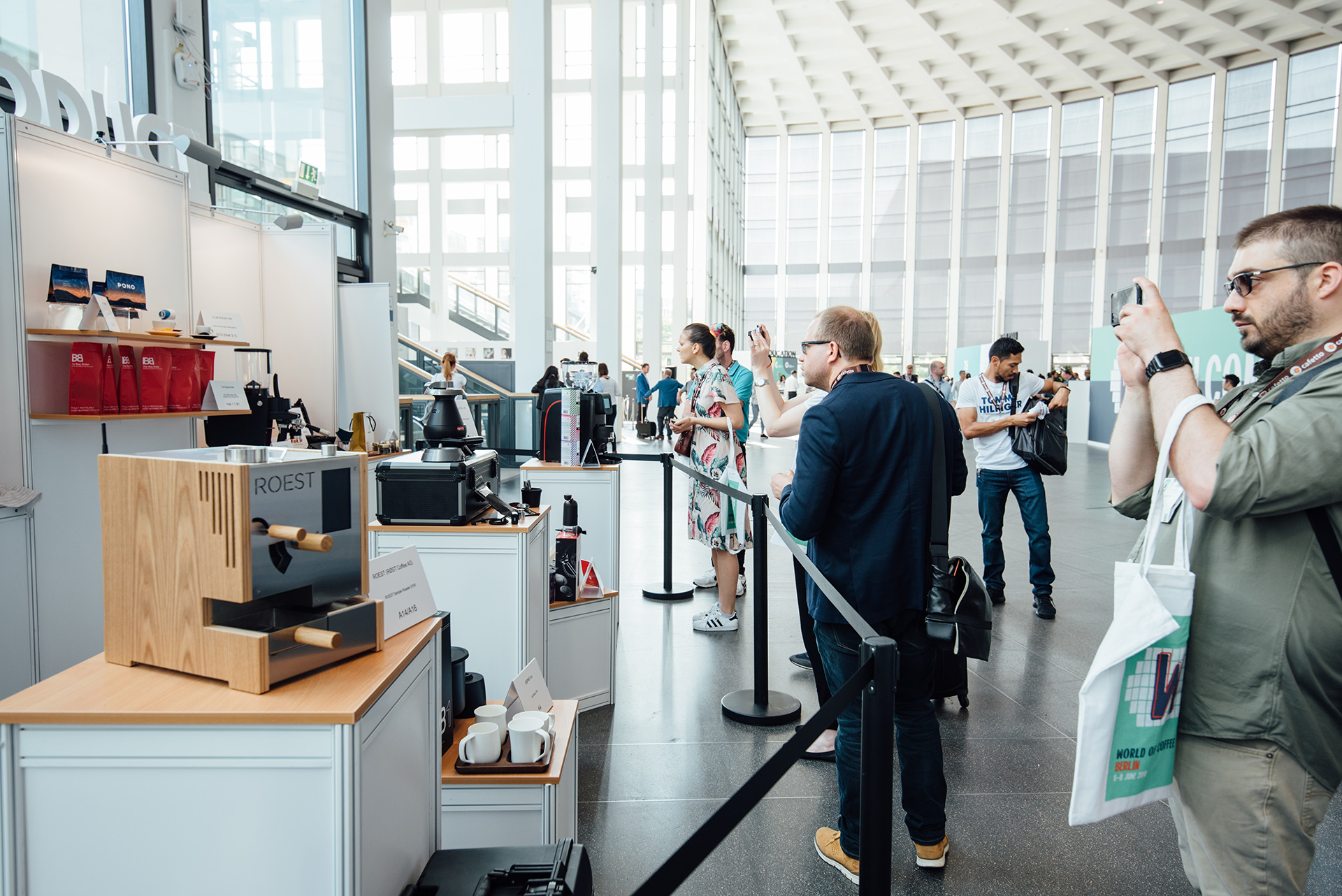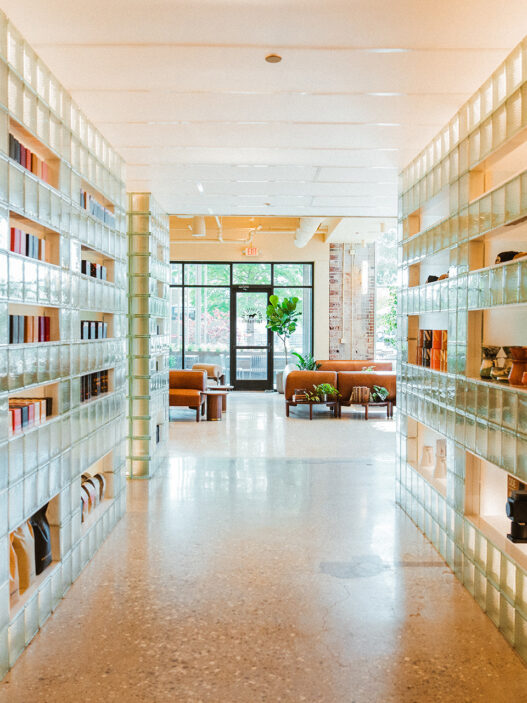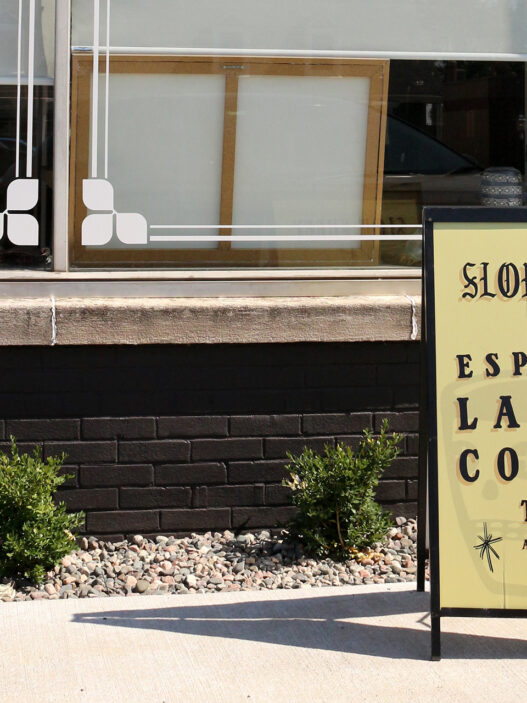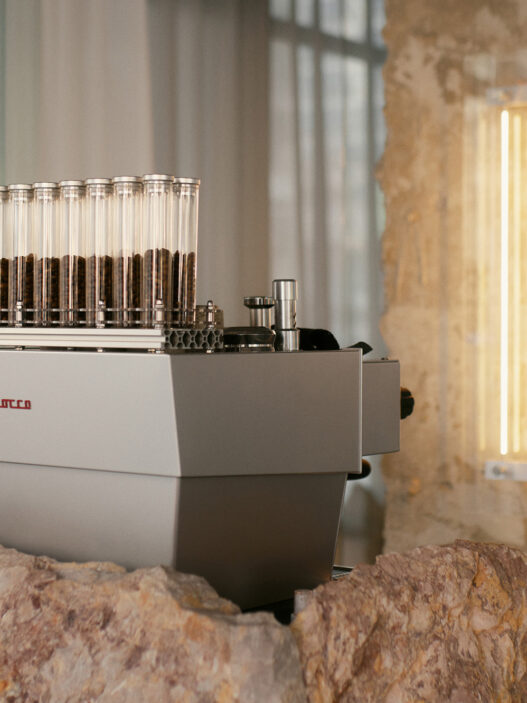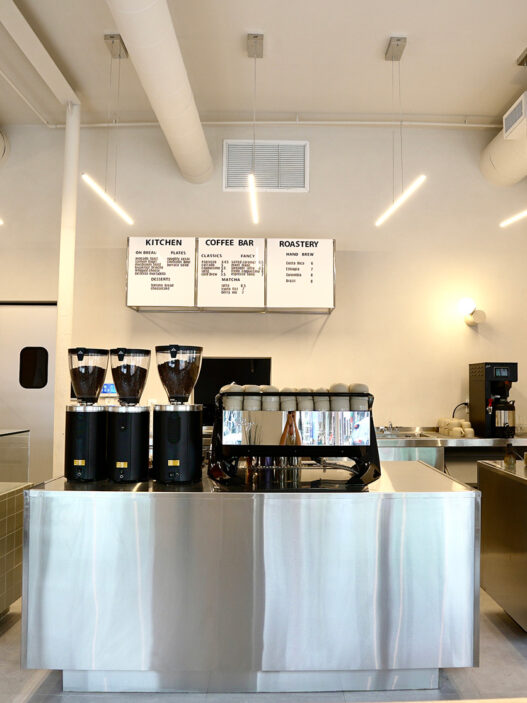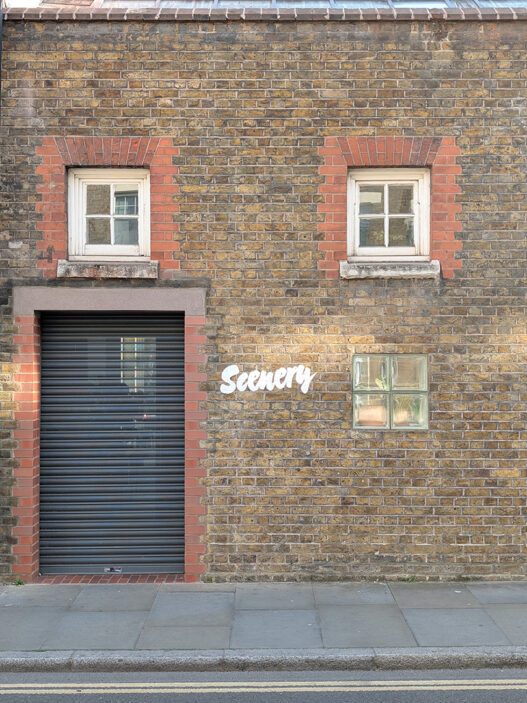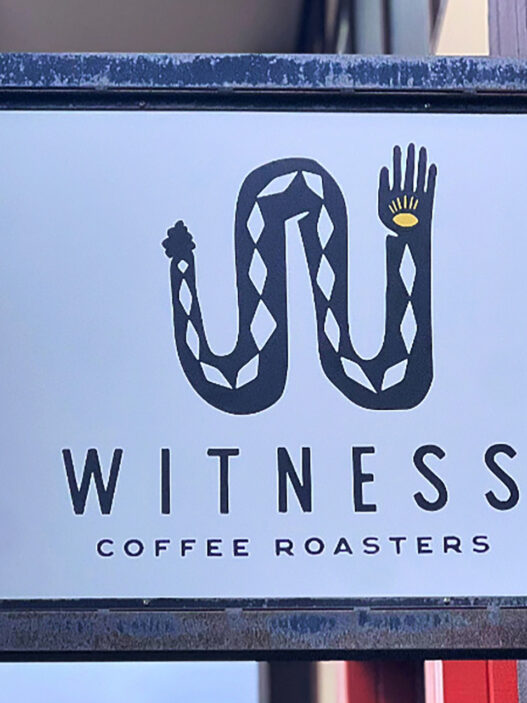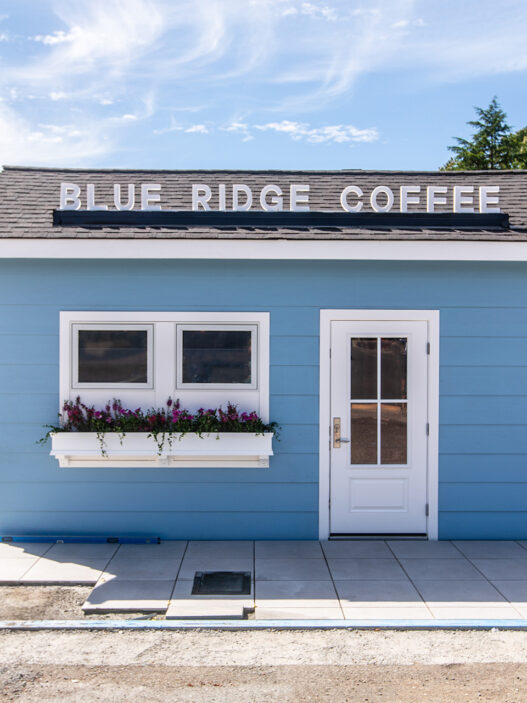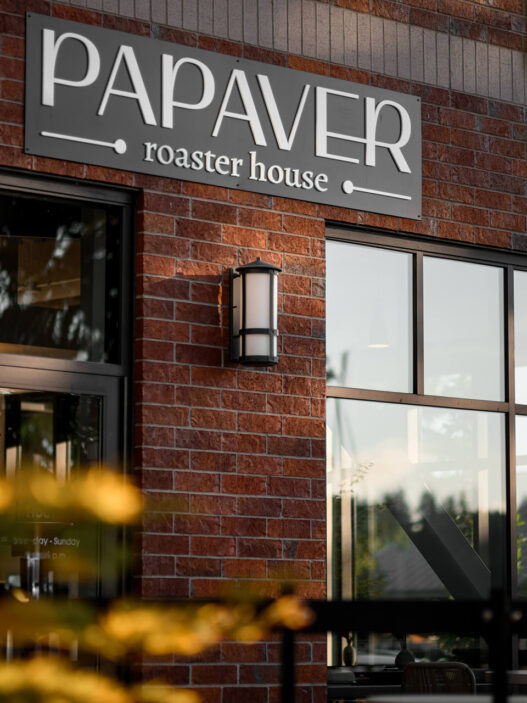We’re road tripping today here on the Build-Outs of Coffee. We’re taking I-87 about 80 miles up from New York City and heading to the Hudson Valley to visit New Paltz, population 7,000. There you’ll find a soon-to-open cafe/roastery Dry Fly Coffee Roasters. After a two-year delay due to COVID and other hold-ups—many of this year’s Build-Outs entries can relate—the brand new 1,500-square-foot space is ready to throw open their doors next month.
Ahead of that, we’re checkin in with co-owner Noah Michaels, who tells us about some of the very cool eco-conscious features in the commercial complex his company will soon to call home, including solar power and geo-thermal heating and cooling for an entirely net-zero energy design. This may just be your new mid-way stop on your way up to Albany.
The 2022 Build-Outs of Coffee is presented by Dripos, Dona, and Mill City Roasters. The 2022 Build-Outs of Coffee is sponsored by La Marzocco, Pacific Barista Series, Acaia, Cropster, and Marco Beverage Systems.
As told to Sprudge by Noah Michaels.
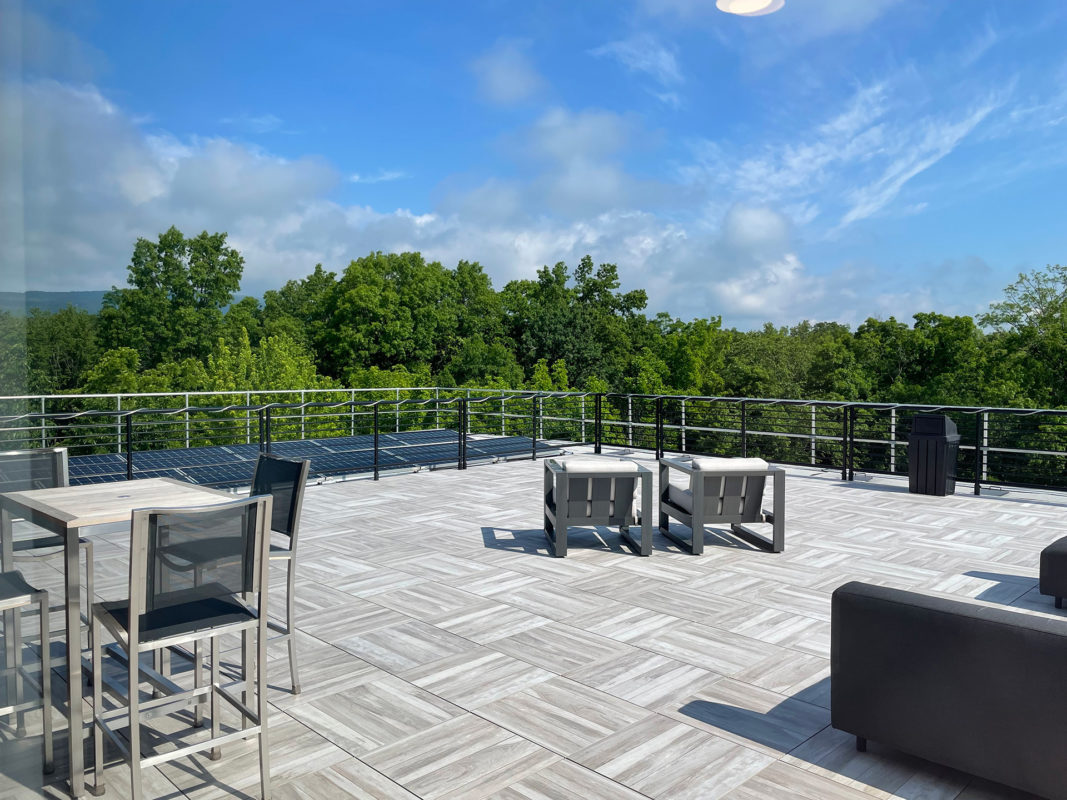
For those who aren’t familiar, will you tell us about your company?
We’re an independent roaster and cafe located in New Paltz, which is in the Hudson Valley about two hours north of New York City. We have a deep focus on sourcing, whether it globally through fostering equity through our coffees or through supporting our local agricultural and maker community with our food and baked goods. We believe that by investing in quality ingredients and people, we’re able to deliver exceptional quality to our customers and help to create communities we want to live in.
With those goals in mind, we aim to roast and serve tasty and traceable coffees and serve them with a carefully curated collection dishes prepared from the best ingredients available from nearby farms and producers in a bright welcoming environment.
Can you tell us a bit about the new space?
We’re located in a truly amazing space in the village of New Paltz. It’s a residential/retail space designed to be entirely net-zero (solar powered, super well insulated, and geothermally heated/cooled). It has 46 apartments on site as well as five commercial spaces and is right on the Wallkill Valley Rail Trail, which is a 22+ mile recreational trail for walking, riding, etc. We loved the space as soon as we saw it and have actually been waiting for more than two years (between COVID and other delays) to start our build out. We’ve taken over an approximately 1,500-square-foot unfinished commercial space, which is more than a little overwhelming. We are looking to create a bright and open space that is sparse but inviting with lots of plants and natural light.
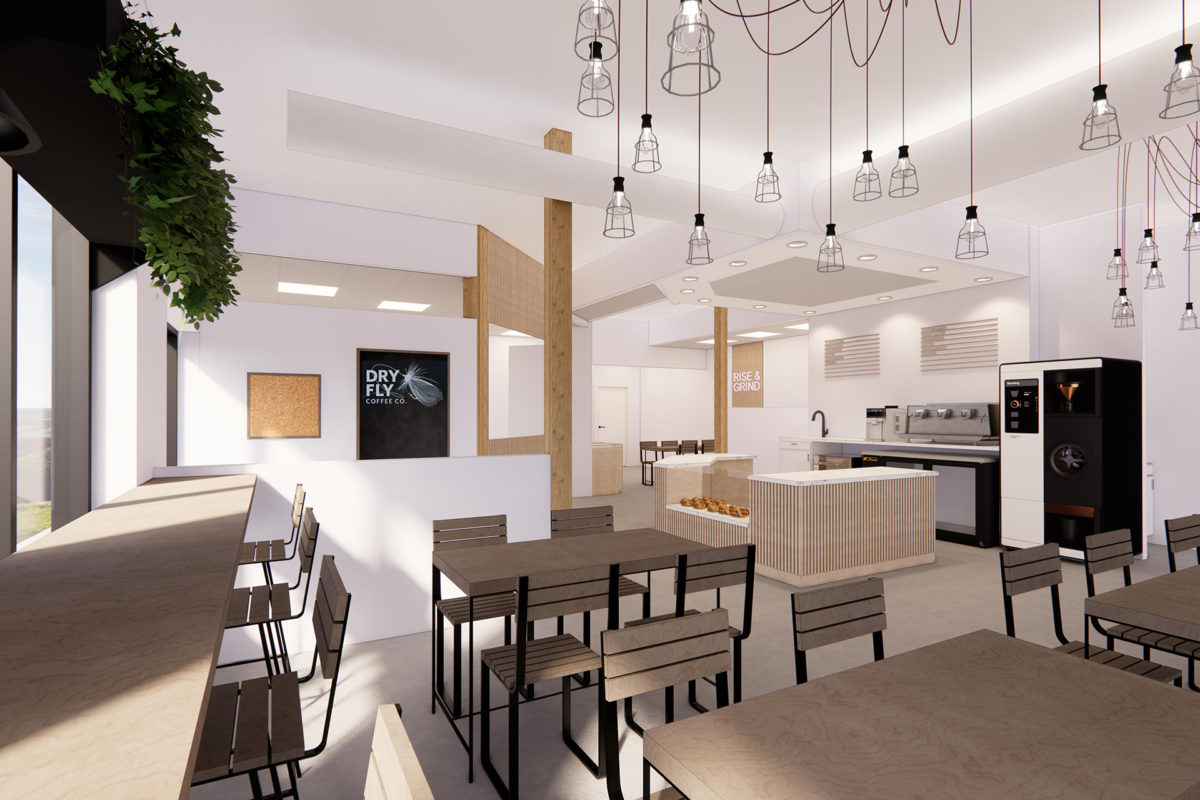
What’s your approach to coffee?
As a former chef, I believe that less is more and that it’s important to allow ingredients to shine on their own. We treat our coffee the same way, focusing on carefully sourcing great tasting coffees and roasting them on the lighter side of the spectrum, preserving their inherent qualities and acidity. We aim for careful and thorough extraction to maximize sweetness and body and while we make a few seasonally inspired specialty coffee drinks, we don’t have a wall of flavored syrups to cover up our coffees with.
Any machines, coffees, special equipment lined up?
We try to balance our desire for the high quality with our sustainability goals. That led us to choose a Bellwether roaster. In addition to its ease of use and installation, it’s fully electric and produces zero VOCs during roasting. They also have a great green coffee market, delivering real value to coffee producers through programs like their Verified Living Income and Tip the Farmer. Another key piece of equipment that helps us stay on mission is our two-group Victoria Arduino Eagle One. It has a whole host of technological innovations that allow it to use less water and electricity than comparable machines and it makes amazing espresso. In addition to these two cornerstones of our coffee program, we’ve added a Nuova Simonelli Mythos for our house espresso, a Nuova Simonelli G20 for our guestpresso program (focused on highlighting underrepresented coffee communities) and a Mahlkönig GH2 for our batch and cold brews. Finally we’re using a FETCO Extractor for our batch brewer, a Marco FRIIA HC for drinking water, tea, and Americanos and two Yama Towers for our cold brew.
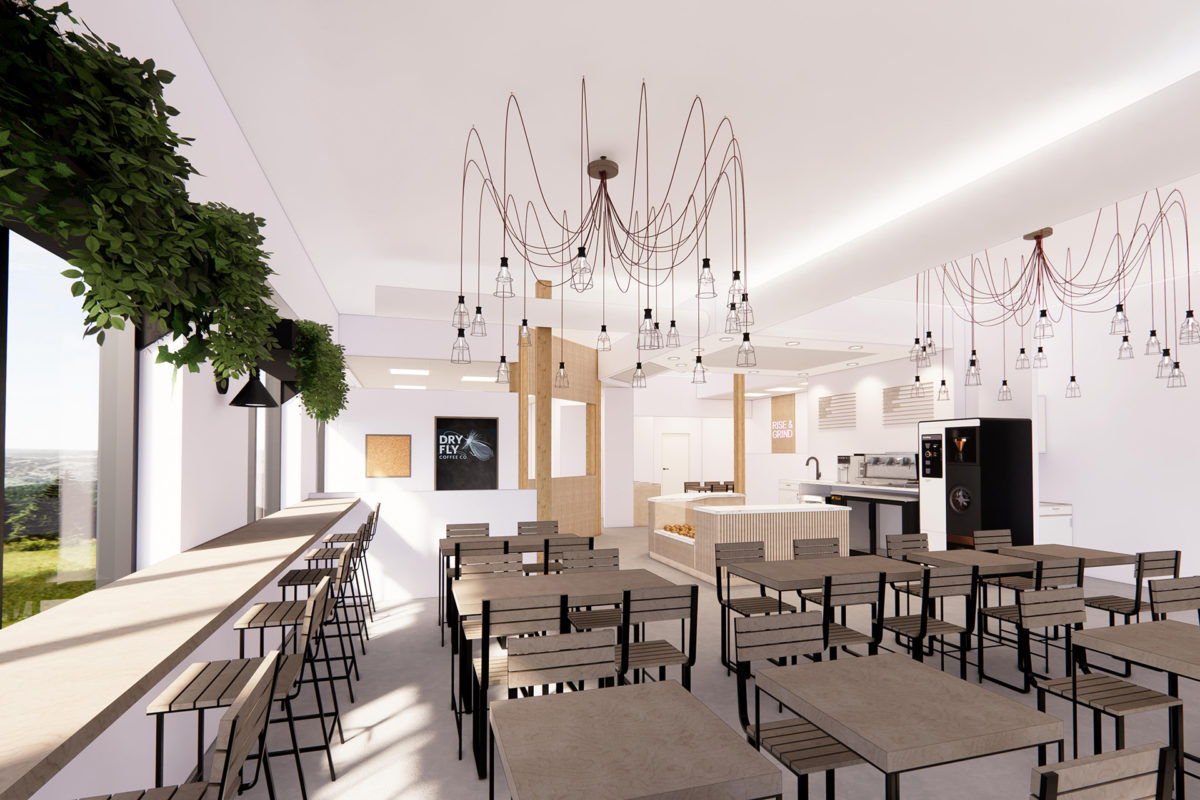
How is your project considering sustainability?
Sustainability is core to our brand and values and we’ve made major investments towards establishing ourselves as a leader in the field. It began with our choice of site and building, which is the first high density, Net Zero building in the Hudson Valley. As I said earlier, we waited for over two years for it to be completed since it was such a unique space and opportunity. The whole building sits on a massive series of geothermal wells, which provide all of the heating and cooling. This is complimented by state of the art windows and insulation to minimize any temperature loss. Finally the entire building roof and awnings are covered with solar panels to power everything. Using this infrastructure as a jumping off point, we decided that we wouldn’t bring any gas into the space, which precluded us from adding a traditional (drum type) roaster and we decided to invest in a Bellwether instead. For those not familiar with the Bellwether, it’s a fully electric roaster that produces zero emissions, plus it’s very easy to install without the need for ducting. It’s also super modern looking and is a great customer draw due to its unique look and operation.
Another large investment involves our choice of espresso machine. After review of the marketplace, we decided to add a Victoria Arduino Eagle One, which was designed to be the most sustainable machine on the market. It has a smaller, more responsive thermal block and uses rinse water from the grouphead to preheat incoming water. This means it heats up much faster than other machines (as little as 15 minutes) and uses less power to maintain its ready state.
In addition to these large initiatives, we’ve also implemented several smaller sustainability steps as well. This begins with our packaging. We’re using Biotre (partially compostable) as the base for all of our coffee bags and eagerly awaiting the introduction of a fully compostable bag. In our cafe, our front and back bar, condiment station, bakery pass and all of our tables and chairs are made from wood reclaimed from defunct bowling alleys. Additionally, all of our to go cups are designed to be recyclable but we’re also participating in Huskee Swap which encourages our customers to use reusable Huskee Cups. Finally, our build out is fully compliant with the LEED certification requirements including choice of woods used, types of lights and other building materials are considered sustainable.
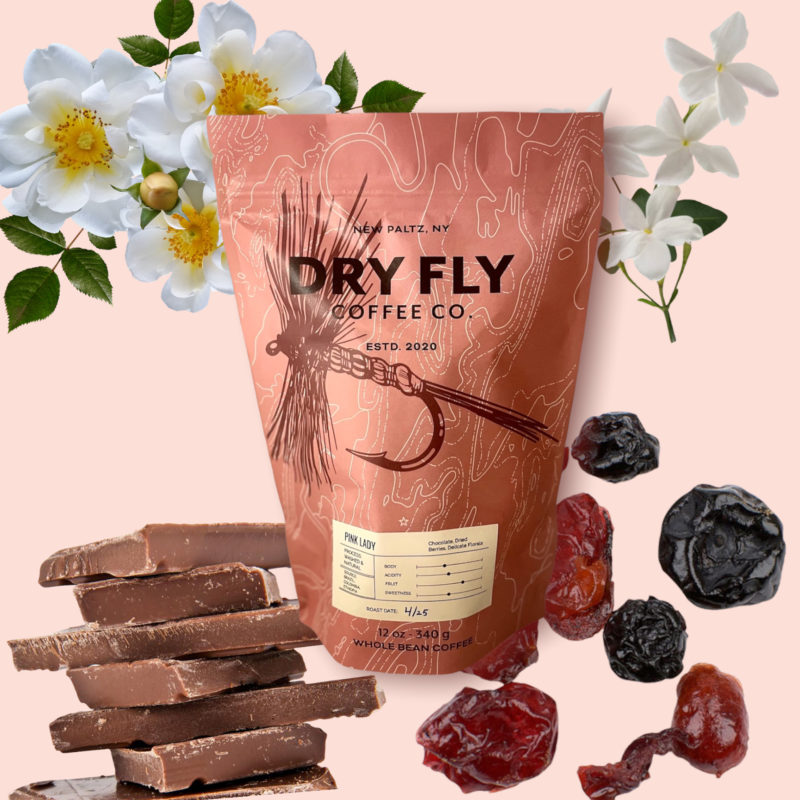
What’s your hopeful target opening date/month?
We hope to open in early- to mid-July.
Are you working with craftspeople, architects, and/or creatives that you’d like to mention?
We’re working with a great team of craftspeople and have a full up to date list on our website. We hired the same architecture firm (Bolder Architecture) that designed the entire building to ensure full compliance with the Net Zero and LEED requirements. Our build out is being done by Thomas Martin Design & Build, which has done several commercial build outs in Brooklyn and moved his family back up to the Hudson Valley during COVID. One particularly cool company, CounterEv, is doing all of our bars and furniture. They split time between Brooklyn and the Hudson Valley, with all they’re manufacturing done in nearby Kingston. They build all of their furniture from American Heart Pine reclaimed from closed bowling alleys.
Thank you!
The 2022 Build-Outs of Coffee is presented by Dripos, Dona, and Mill City Roasters. The 2022 Build-Outs of Coffee is sponsored by La Marzocco, Pacific Barista Series, Acaia, Cropster, and Marco Beverage Systems.
Explore every last Build-Out over the last decade in our archives.







